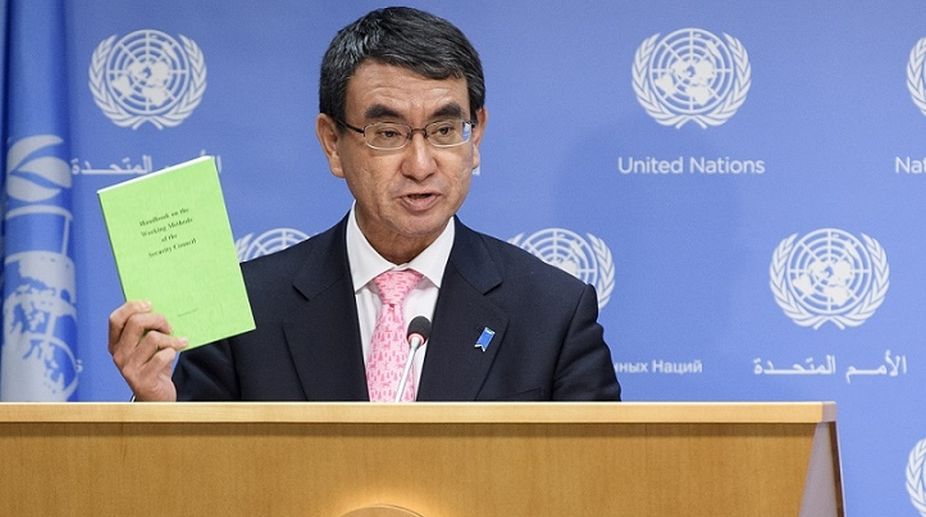Japanese Foreign Minister Taro Kono has called to urgently revitalise the long-stalled Security Council reform process by adopting a text on which to base the negotiations during the current General Assembly session.
“The reform of the Security Council is an urgent task necessary for the Council to more effectively address threats to international peace and security,” he said at a news conference here on Friday.
Advertisement
“It is important to launch text-based negotiations in the Intern-Governmental Negotiations (IGN) of the current session of the General Assembly.”
Kono’s call for adopting the negotiating text comes ahead of the next IGN meeting scheduled for January 29 and 30, 2018.
Along with India, Japan is a member of the group known as G4, which campaigns jointly for Council reforms. The other members of the group are Brazil and Germany. The four nations also mutually support their membership in a reformed Council.
India has also called for text-based negotiations.
“Japan will continue to work on the early reform of the Security Council in close cooperation with other member states,” Kono said.
He announced that Japan will contest the 2022 election for a Council seat. Until the reform is finally achieved, he said, Japan will try to be a non-permanent member of the Council as often as possible.
Japan completes its current two-year term as an elected member of the Council at the end of this year.
The negotiation process for Council reforms has been stalled for more than a decade with the UN’s 193 members to even agree on a document or text that would be the starting point for real negotiations on reforms.
Hence Kono’s insistence on adopting such a document and moving to text-based negotiations.
The reform of the UN secretariat launched by Secretary-General Antonio Guterres that embraces the areas of peace and security, and development and management would be incomplete without reforming the Council, he said.
He drew attention to the unrepresentative character of the Council, pointing out that it doesn’t have a single permanent member from Africa. That region has 55 nations making up more than a quarter of UN membership.
General Assembly President Miroslav Lajčák rebooted the reform process last month, saying: “The time for trying is up; now is the time for action.”
He appointed Kaha Imnadze of Georgia and Lana Nusseibeh of the United Arab Emirates as IGN co-chairs.











